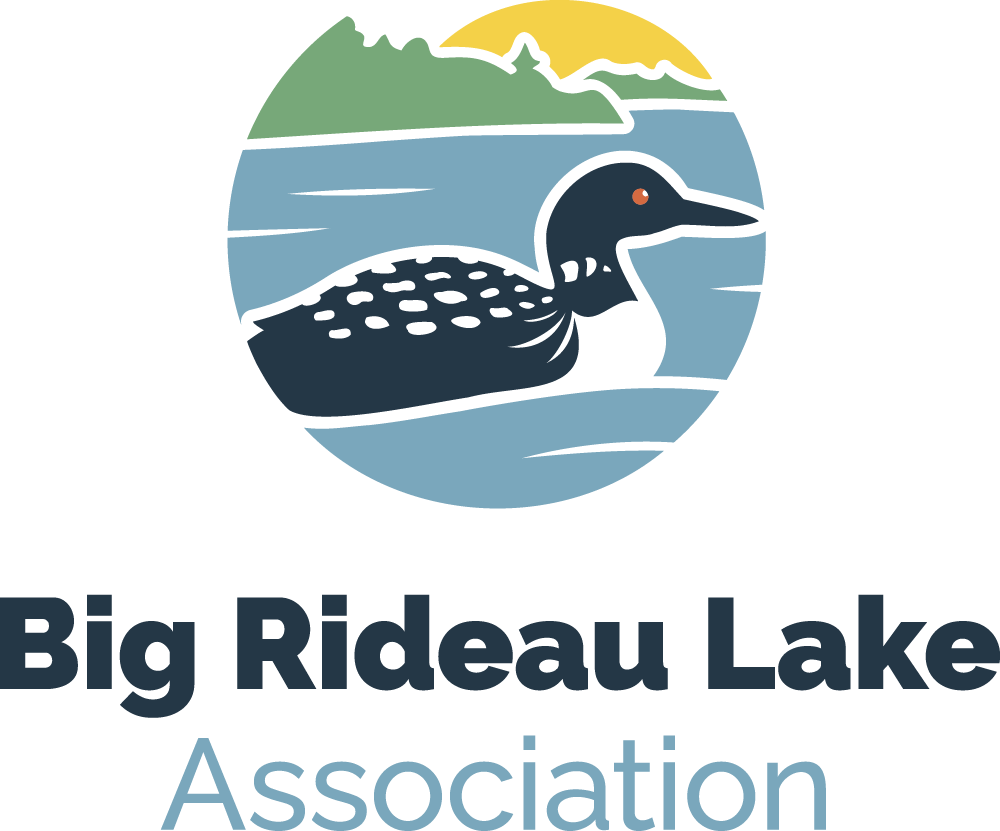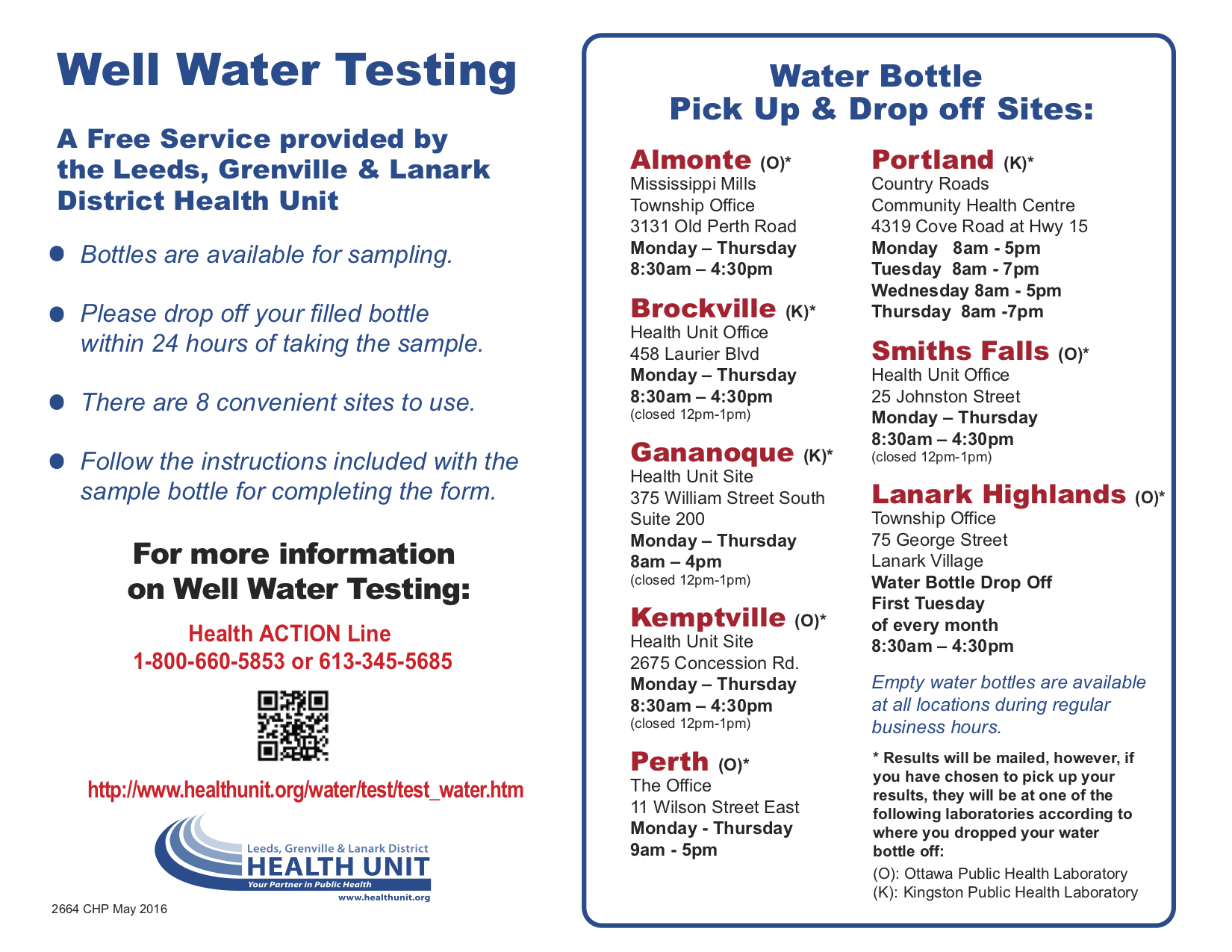
Well Water Safety
In our area, the Leeds, Grenville and Lanark District Health Unit is responsible for ensuring resident's drinking water is safe to consume. The following information is summarized from the Health Unit's website; for complete information, click the link.
Where to Pickup Bottles for Private Drinking Water Testing
Sample bottles are provided free of charge to homeowners with private wells at any of the Leeds, Grenville & Lanark District Health Unit offices, located in Smiths Falls, Brockville, Kemptville and Gananoque. Sample bottles are also available at the Leeds and the Thousand Islands Public Library Lansdowne Branch and the following municipal offices: Athens, Beckwith, Drummond/North Elmsley, Edwardsburg/Cardinal, Elizabethtown/Kitley, Lanark Highlands, Leeds and the 1000 Islands, Merrickville-Wolford, Mississippi Mills, Montague, Perth, Rideau Lakes and Tay Valley, Westport.
How to Take a Water Sample
Follow these steps to properly sample your water:
- Samples must be collected in a health unit or private lab water sampling bottle. The bottles may contain a preservative, do not rinse the bottle before collecting the water sample.
- Take the sample from a tap that you would normally use for drinking water in your home or small drinking water system. Remove all filters or aerators from the faucet. Carefully clean the end of the tap with a clean cloth and some bleach or an alcohol swab. Let the cold water run for at least three (3) minutes prior to taking your sample.
- Avoid contaminating the sampling bottle or lid, have clean hands and keep the lid in your hand, and avoid touching the inside of the cap.
- Be sure to fill out the attached paper work completely. Private homeowners can get quick results by calling 1-877-723-3426 and using the bar code provided within the home water testing kit.
- Once the sample is taken, keep it cold but not frozen until you can get the sample to the sample drop-off location.
Please do not rely on the results from a single sample. A series of three samples taken one to two weeks apart will help determine the safety of your water over time.


